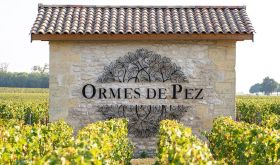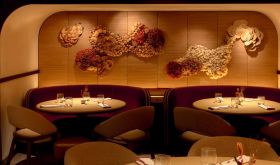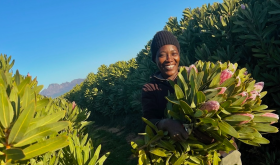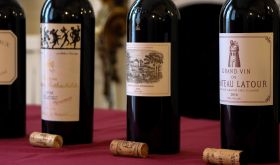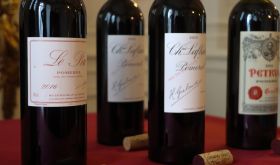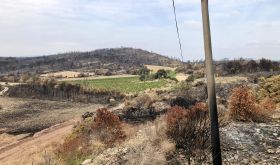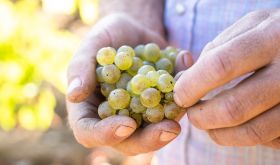There is no doubt about it, the world of wine is getting more and more complex and confusing. Consumers are confronted by a wider range of countries, regions, grape varieties and styles than ever before. Meanwhile, wine is a more popular interest worldwide than it has ever been, resulting in literally millions of newcomers to wine around the globe.
In the old days wine knowledge was centred on Europe and tended to be handed down personally between the generations. Wine consumers were typically men – female interest in wine is a relatively new phenomenon – who had inherited a love of wine, and often a collection of bottles, from their fathers or other relatives or mentors. These people could pass on their experience (and, often, prejudices) directly to the next generation of wine connoisseurs. “Follow Lynch Bages, old boy, and you’ll never go wrong”, sort of thing.
Today, the number of new wine drinkers far outnumbers the pool of more experienced wine lovers, who can therefore no longer be relied upon as the prime source of wine education. An interest in wine is being incubated in some countries which have only the most nascent wine culture. Via JancisRobinson.com I hear from all sorts of frustrated wine lovers, from Oklahoma to Finland to Thailand, who sometimes feel isolated in their love of wine and are desperately seeking fellow enthusiasts from whom to soak up knowledge.
So how can newcomers to wine nowadays learn about it? In places with more developed wine cultures, wine educators and courses have been stepping in to fill the gap. The most successful global wine education body, the Wine & Spirit Education Trust (www.wset.co.uk ), may be based in London but it now runs wine courses, at many different levels leading as far up the ladder of intricacy as the threshold of the Master of Wine qualification, in 42 countries. And each pocket of wine culture around the world also tends to have its own local wine gurus, courses and schools – quite apart from the professional qualifications offered in important centres of wine production such as Davis, Adelaide and Bordeaux.
But in locales where wine is still something relatively novel, such as Russia, India or parts of Africa, wine connoisseurship rarely has enough critical mass to justify any formal wine education. Newcomers to wine may have to depend either on a friend who knows a little bit more about wine than they do, or on wine importers and retailers for guidance.
On the face of it learning from the wine trade is less satisfactory than education from a thoroughly impartial source. Importers are clearly going to favour their own products when ‘educating’ potential customers. But for the importers themselves, there is sweet consolation to be had in working in an under-developed market. In, say, Guam or Ghana, a wine merchant will more or less have the field to themselves – unlike their counterparts in, say, London or New York who have to scream to make themselves heard and their products bought. I for one find it fascinating to go round the world monitoring how various producers seem to have different territories tied up, chiefly thanks to diligent work by one particular importer.
But if I am a little cynical about the ability of importers to provide a solid grounding in the fundamentals of wine, I am enthusiastic about the role of wine retailers as a source of wine knowledge. Of course some markets are so embryonic that wine retailers hardly exist. To get your hands on a bottle of decent wine you may have to buy in a restaurant or hotel, the first target of any importer in a new wine territory. But when a wine market is mature enough to have some decent, well-educated wine retailers, then it has what even I, who earn my living by selling wine education in the form of books, videos and articles, have to admit is probably the best wine education system of all.
I see many parallels between wine and books. Winemakers are authors in so many ways. The way we consume both wine and books can be very similar; our tastes are similarly subjective and varied. And the roles played by good wine retailers and good booksellers are almost identical. When someone new to wine asks me how they can learn, I resist the temptation to sell them one of my books and suggest that they strike up a rapport with good wine merchant. The best way to progress from the handful of wines they know they like is to discuss these with a sympathetic wine retailer. If the retailer is sensible and thinking of nurturing a long term relationship then it is in their interest to recommend wines similar to those that have already appealed but more interesting or better value. It’s just like what I would expect from a good book shop. I mention a few books I have enjoyed and any good bookseller will recommend others that are likely to appeal to me. The only snag with this neat solution to the increasingly common problem of how to learn more about wine is that, like independent bookshops, independent wine retailers are increasingly under threat from larger, and generally much less friendly and helpful, retail chains.
Perhaps predictably in our online age, the internet can offer alternatives to the human voice when it comes to guiding newcomers to wine. Most wine-based online communities I can think of can field a host of wine enthusiasts only too willing to advise those who admit to knowing a bit less about wine than they do. But, as with all websites, it can be difficult to evaluate the quality and accuracy of what is on offer. And not all wine neophytes are brave enough to admit their (common) state of ignorance to more than one person at a time.
Long live good wine retailers, say I, while hoping that the world’s swelling ranks of wine lovers will not forget those of us who toil to keep them fully informed.
See also our survey of wine courses.


